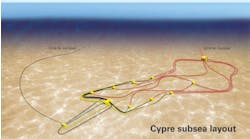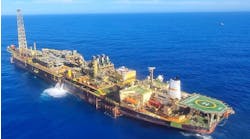Offshore staff
LONDON – Britain’s Oil and Gas Authority’s (OGA) is benchmarking flaring and venting of greenhouse gases from fields in the UK North Sea.
Last year, the quantity of gas flared and vented in the UK’s offshore upstream oil and gas production was equivalent to 3% of all natural gas produced across the sector.
Certain levels of flaring and venting, which involves discharging gases to the atmosphere, are unavoidable for safety and operational reasons, the OGA said, but added that more can be done in terms of reductions.
The Authority issues consents for flaring and venting of gas on licenses but is investigating imposing stricter measures to eliminate unnecessary or wasteful flaring and venting.
This could involve closer scrutiny of flaring and venting requests in existing production programs and in new field development plans.
Now the OGA has introduced benchmarking of flaring and venting data to encourage improved performance across industry.
Among recent findings:
- 42 bcf of gas was flared from UK offshore facilities in 2019, 4% less than in 2018, and the sector’s the first annual reduction since 2014.
- 7 bcf of gas was vented in 2019, 34% down on the total for 2018.
- 114 scf of gas was flared for each barrel of oil produced in 2019, 12% down from the 129 scf/bbl recorded in 2017.
According to the OGA, some operators are assessing eductors – specialist pumps – to minimize flaring, and there is evidence that many companies are now prioritizing flare/vent volumes in their day-to-day operations.
Currently flaring constitutes a quarter of all UK offshore oil and gas production related CO2 emissions and 1% of total UK annual CO2 emissions (as of 2019).
Venting produces less than 1% of the UK’s offshore oil and gas CO2 emissions, but accounts for around half of all offshore methane emissions, and represents 1% of total UK annual methane emissions (in 2018).
Hedvig Ljungerud, OGA director of Strategy, said: “While it’s encouraging to see a fall in volumes flared and vented, we believe there are clear opportunities for industry to go further to advance cleaner production.
“Our benchmarking has already been proven to raise performance levels in other areas, such as production and decommissioning cost efficiency, enabling operators to learn from good examples set by others and allowing us to focus our attention and interventions in the right areas.”
09/28/2020



